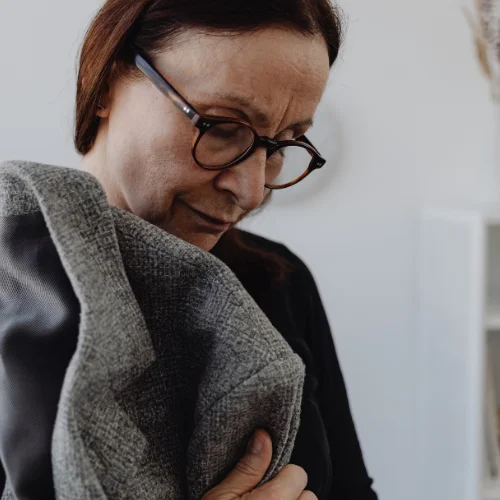How Do Bedridden People Poop?
Being bedridden can be a tough situation for anyone. It’s not just about staying in bed all day; there are basic bodily functions like pooping that become a challenge. In this blog post, I’ll walk you through how bedridden individuals manage to poop, the problems they face, and some creative solutions that family caregivers can use to make things easier. We’ll also take a look at what research has to say about this topic.
How Do Bedridden People Poop?

When you’re bedridden, getting to the bathroom isn’t an option. So, how does it work? Well, there are a few methods. One common way is using a bedpan. It’s like a portable toilet that slides under you while you’re lying in bed.
You do your business, and then someone helps you dispose of it properly. Another option is a commode chair, which is like a chair with a hole in the seat. You sit on it, do your thing, and then it’s emptied out.
But what if you can’t move at all? In that case, caregivers might need to use something called a catheter. It’s a thin tube that goes into your bladder to help you pee. And for pooping, there are things like rectal tubes or enemas. These methods might not be pleasant to think about, but they’re necessary for people who can’t move on their own.
Problems Faced by Them
Imagine not being able to go to the bathroom whenever you need to. It can lead to all sorts of issues, like constipation or infections. Plus, it’s embarrassing to need help with something so personal. And if you’re in pain or discomfort, it only adds to the stress.
There’s also the risk of pressure sores, which are like really bad bruises from staying in one position too long. They can develop on the buttocks or around the anus, and they’re not fun to deal with.
Social Humiliation

Beyond the physical challenges, there’s also a significant emotional aspect to consider for bedridden individuals when it comes to toileting. The need for assistance with such personal tasks can lead to feelings of embarrassment, shame, and even social isolation.
Imagine relying on someone else to help you with something as basic as using the bathroom. It’s not easy to maintain a sense of dignity when you’re dependent on others for such intimate needs. Many bedridden individuals may feel ashamed or humiliated by their situation, especially if they were once independent and self-sufficient.
Moreover, the need for assistance with toileting can impact social interactions and relationships. It may become a barrier to participating in activities or social gatherings, leading to feelings of loneliness and isolation. Some individuals may even avoid seeking help altogether, risking their health and well-being rather than facing the perceived humiliation of needing assistance with toileting.
Family caregivers also play a crucial role in mitigating social humiliation for their loved ones. By providing compassionate and respectful care, they can help preserve the individual’s sense of dignity and autonomy. This includes maintaining privacy during toileting, using gentle and supportive language, and being sensitive to the individual’s emotional needs.
Addressing social humiliation requires a holistic approach that considers both the physical and emotional aspects of toileting care. By promoting open communication, understanding, and empathy, we can work towards creating a supportive environment where bedridden individuals feel valued, respected, and included in their communities.
Creative Solutions for Family Caregivers
As a family caregiver, there are ways you can make things easier for your loved one. For example, you can try using bed pads or adult diapers to manage accidents. These are absorbent pads that go underneath the person to catch any leaks. They can be a lifesaver when you’re dealing with frequent trips to the bathroom.
You can also set up a routine for toileting. Try to schedule bathroom breaks throughout the day to prevent accidents and keep things running smoothly. And don’t forget about hygiene – make sure to clean your loved one thoroughly after each bowel movement to prevent infections.
What Does the Research Say?
In this study conducted by researchers Sjaak van der Geest and Shahaduz Zaman from the University of Amsterdam, they delve into the often overlooked and uncomfortable topic of how people who are bedridden manage defecation in hospital and care settings.
They focus particularly on the sensory aspects surrounding this bodily function, highlighting that sensory experiences during care are not just about pleasant sensations that aid healing, but also include unpleasant and even disgusting experiences that can exacerbate pain and suffering.
The researchers draw from their anthropological observations and personal experiences in diverse settings such as Bangladesh, Ghana, and the Netherlands. They emphasize that defecation, being a fundamental bodily process, engages at least four of our traditional senses—sight, smell, touch, and sometimes even taste.
Moreover, they shed light on the social and emotional impacts that defecation in a hospital environment has on both patients and caregivers.
To illustrate these points, the study includes firsthand accounts and quotations from various sources, including scientific literature and fictional narratives. By incorporating these diverse perspectives, the researchers aim to convey the lived experiences of disgust and the challenges of overcoming it in the context of healthcare.
Overall, the study provides valuable insights into an often-neglected aspect of patient care, highlighting the need for greater attention to the sensory and emotional dimensions of bodily functions, especially in situations where individuals are confined to a bed.
Conclusion
Being bedridden presents many challenges, and pooping is definitely one of them. But with the right support from caregivers and healthcare pros, it’s possible to manage these challenges and maintain dignity and comfort for the person in need.
By understanding the methods available for toileting, addressing the problems that arise, and implementing creative solutions, we can ensure that bedridden individuals receive the care and support they deserve.
